This conversation is part of a series of interviews with various brothers and teachers, including many fellow writers, all of which are part of the body of work surrounding my book-length memoir An Ordinary Disaster—one man's proof that we can all learn to listen to ourselves, and to act upon the inner voice of our self, our sanity and our soul.
Today, I'm speaking with Charlie Engle. Charlie is an ultra-endurance athlete, author of an outstanding memoir called Running Man, the subject of a documentary film called Running The Sahara, and the founder of the 5.8 Dead Sea to Everest project, in which he will travel under his own power from the lowest to the highest points on all seven continents. Charlie is also one of the most accomplished ultramarathon runners in the world, having placed in hundreds of races in dozens of countries around the globe.
His motivation to run and tackle extreme adventures stems from his battle with addiction to drugs and alcohol. Charlie has been in recovery since July 23, 1992, and he credits a large part of his recovery to the purposeful devotion and emotional release he experiences while running.
Charlie and I met through my friend Todd Eichler, who I met through my friend and previous guest Adam Gayner, who I met through EVRYMAN, one of the leading organizations for men's work and men's groups. If you’re a man and you’re not yet familiar with the world of mens work, and you’d like more community, connection and emotional depth in your life, I highly recommend finding a men's group to participate in.
I want to say thanks to all of you. There are now 750 of you—subscribers to my Substack, that is, and many have also chosen to become paying supporters. Of all the communities that I’ve been involved in, joined, started, and led over the years, this community of readers, listeners, subscribers and supporters, of fellow writers, and of the broader world of writing is the most gratifying, the most real, and the most of myself of them all. Thank you for being here, and as those of you who have felt to inquire know, my door is open, and so if there’s something you’d like to talk about, just ask.
Particularly huge thanks to folks who have become paying subscribers recently, including Mary, Tommy, Sean, Michael, Thom, John, Zoe, Bill, kingultra01, Julie, Tom, Danielle, Jean, Volker, Taryn, my father Duncan, Anthony, Samir, Peter, and Zach—and to the growing list of other Substackers who recommend my work. Check them out when you get a chance:
and .In the meantime, if you do enjoy this episode, please do take a moment to click the little heart button 🤍 to “Like” this post here on Substack. One way to think of the 🤍 button is as a Net Promoter Score—your click on that little heart is the answer to the question—if someone asked you about it, would you recommend this piece to a friend?
As you listen, you might scan the questions at the bottom of the show notes, or just consider this one: what is your own relationship with addiction and addictive patterns? Even if you’ve never been addicted to anything at all—although that’s doubtful—what do you know, or think you know, about the mechanisms of addiction? Most of what I thought I knew for most of my live was wrong, and it’s been highly informative, useful, and interesting to get more familiar with what addiction really is, and how it affects just about all of us.
Show Notes
RUNNING
how “we all ran when we were kids,” and “it's a thing that we are naturally meant to do.”
“Running isn't what people think it is”
“It's not even running that I like that much. It's stopping. It's the feeling that you get of having done something.”
…human scale and human speed movement…when we move through the world on our own two feet…we see the world and in the way that we evolve to see it.
“coming into a village on foot changes everything.”
DISTANCE IS DIFFERENT
There's something about making a journey over the course of many days under your own power—It becomes a pilgrimage…
“nobody remembers the things that are easy.”
“long expeditions allow me to disconnect from the world in a way that I can't in running a marathon or even running a hundred miler.”
“recovery is all about focusing on what's right in front of you.”
“the end was anticlimactic.”
that full immersion in something so real is something that, we don't get a lot of in regular life.
INTEGRATION
“I didn't know how to integrate the lessons that I had learned along the way into my life.”
“today, pretty much everything that I do, I try to ask myself, how am I using this?”
BORED WHILE RUNNING?
“Ultra Runners as a group are not a particularly bright group of people…”
“I've gotta just get through this next class…”
the natural beauty and fascination of the world pulls me along
the natural elasticity of our conscious experience
BODY MANAGEMENT
“People will ask how's possible to run 5,000 miles…? It's not—it's only mentally possible.”
“there's a great trust that goes on.”
I can consciously activate different muscles or certain parts of my musculature or physiology and, change what's happening on the fly.
“we have a brilliant piece of equipment here, that is way smarter than we are.”
“You try to anticipate what may go wrong.”
“almost always the answer is eat something, drink something and walk or slow down for a minute.”
TRANSCENDENTAL MOMENTS
“I yearn for those moments…it's why I actually do the event because that ability to be in a moment where you're completely empty, find a way to get past it…that's what allows me to not panic when something's going wrong with my business or when things get hard in my marriage, or one of my kids is having problems.”
“the biggest mistake most of us make is we make big decisions at really bad moments.”
“I want to go have a new painful experience somewhere.”
“people talk themselves outta stuff because they are afraid…most of the things we're thinking about are probably just going to be really uncomfortable.”
ADDICTION
“this is the difference between adventure and addiction. The adventure usually turned out to be very difficult but rewarding, whereas the addiction turned out to be nothing but a letdown once I got started…”
addiction tends to reward the acquisition of the feeling, but that the feeling itself is really not so rewarding, whereas with more things that we're attached to, it's kind of the other way around…
“it took me a few years to realize how important and necessary my obsessive nature was and what a valuable asset it is.”
“it is about harnessing the superpower of addiction or obsession and pointing it towards positive things.”
“if you are doing a behavior that's not serving you, then why are you doing it? I don't care if you label it or not. If alcohol is no longer serving you in the way that you hoped that it would, then stop doing it.”
“change very often is a catalyst to, not necessarily easier things, but necessary things.”
for me, choosing to stop drinking was the last thing to change. the end result of that was enough of my consciousness surfacing, that it finally became clear to me that this just doesn't really fit for me anymore.
“there was a recognition finally that, nobody was coming to save me. … what I wanted was someone to actually force me to quit.”
“being vulnerable is the best thing that I've learned how to do.”
“I'd gone to AA meetings to learn how to control my drinking because it was really messing up my drug use. … When I finally quit, I didn't quit forever. … [after] 30 days I couldn't come up with a reason not to keep doing it.”
Classical addiction psychology teaches that the “it” that needs to change is the drinking, but the “it” is something deeper.
“not drinking is not that hard, figuring out the rest of life's the complicated part.”
“Too many people get mired in the, ‘why am I the way I am?’ instead of focusing on ‘how do I get myself out of this?’”
the myth of addiction is that it's something unusual. We're all wired this way. We're not in our bodies enough.
MODERATION IS BORING
“Moderation's boring… I don't spend as much time in the middle ground as other people. A lot of times I'm either up here or I'm down here. …I like it that way.”
“if you're not getting out there in nature and testing your body…what the hell are you doing here?”
DEPRESSION
“if you go on a six day crack binge and you spend all your money, you might be a little depressed right after that…”
“the best way to get myself out of a funk was to help somebody else get out of theirs.”
addiction is depressing, both during and as a result.
feeling low was a symptom of not living right, and I had to be willing to see that as true.
“cut myself some slack… allow ourselves to just be, and not feel the pressure of, oh my God, look at all the things I'm not getting done today.”
You can find Charlie, his book, film and 5.8 Dead Sea to Everest expedition project at CharlieEngle.com
Charlie’s favorite song to listen to while running is September by Earth Wind and Fire.
Further Reading
You might be also interested in some of my other writing on alcohol, especially these two prior pieces Change of Heart and A Five-Minute Love Affair With Natural Wine.
Charlie Engle, Running Man
Running The Sahara film
EVRYMAN mens groups
I also recommend the following books on alcohol and addiction:
Annie Grace, This Naked Mind — my favorite book on how to change your relationship with alcohol
Maia Szalavitz, Unbroken Brain
Stanton Peele, Love and Addiction
Adi Jaffe, The Abstinence Myth
Gabor Mate, The Myth of Normal
David Poses, The Weight of Air: A Story of the Lies about Addiction and the Truth about Recovery
here on SubstackAmy Dresner, My Fair Junkie: A Memoir of Getting Dirty and Staying Clean
Leslie Jamison, The Recovering: Intoxication and Its Aftermath
Carl Erik Fisher, The Urge: Our History of Addiction
Johann Hari, Lost Connections
Caroline Knapp, Alcohol, A Love Story
Mary Carr, Lit
Marc Lewis, The Biology of Desire: Why Addiction Is Not a Disease
…Please stick around, I’ve got some questions for you:
What is your own relationship with addiction and addictive patterns? Even if you’ve never been addicted to anything at all—although that’s doubtful—what do you know, or think you know, about the mechanisms of addiction? Is there anything that you feel that you need to do—and is it something that you also really want to do?
Is there anything physical, or otherwise, that you do that takes you to extreme states of being?
Can you see how addiction could be reframed as a super-power and redirected towards positive obsessions?
Is there anything about how you are currently living that you would like to change?
Are you a runner? What’s your favorite distance and place to run?
Please join the conversation by answering any or all of these in the comments below.
Become a subscriber
In addition to all of my writing and podcast episodes, paid subscribers get super cool DECIDE NOTHING pins, access to occasional bonus and AMA posts and chats—and the opportunity to order a copy of my book when it comes out for just the cost of shipping. If you’re enjoying my writing and podcast, please consider becoming a paying subscriber.
…or just share this post with some folks that you love:

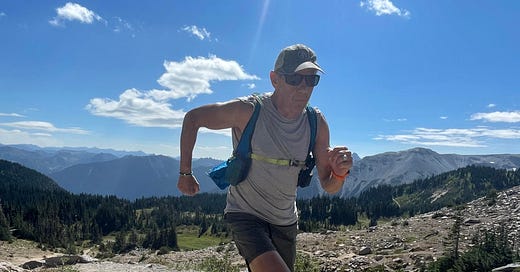


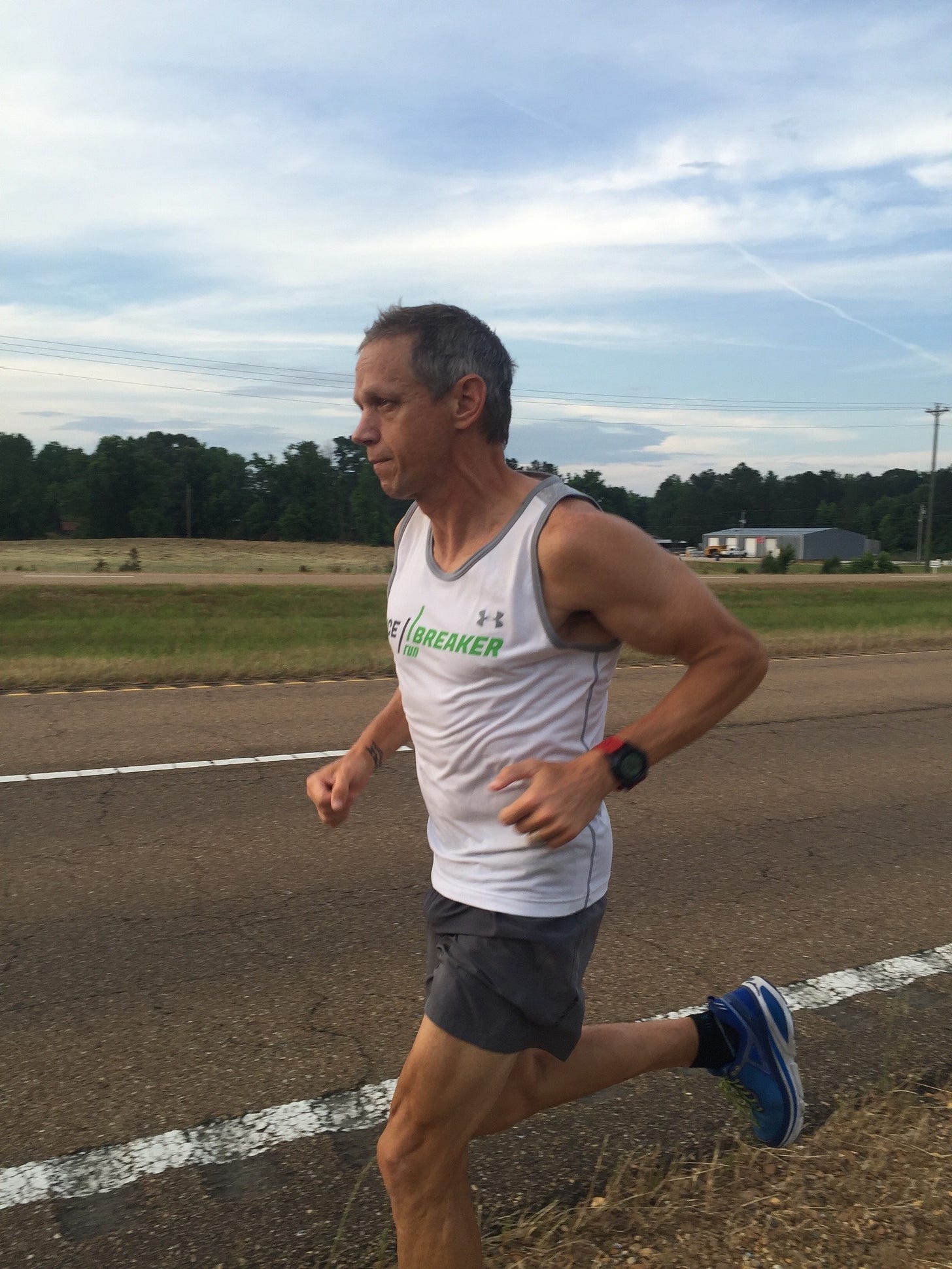
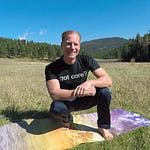



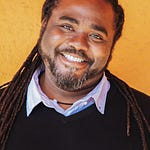
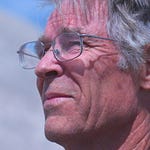
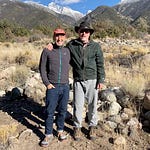
Share this post